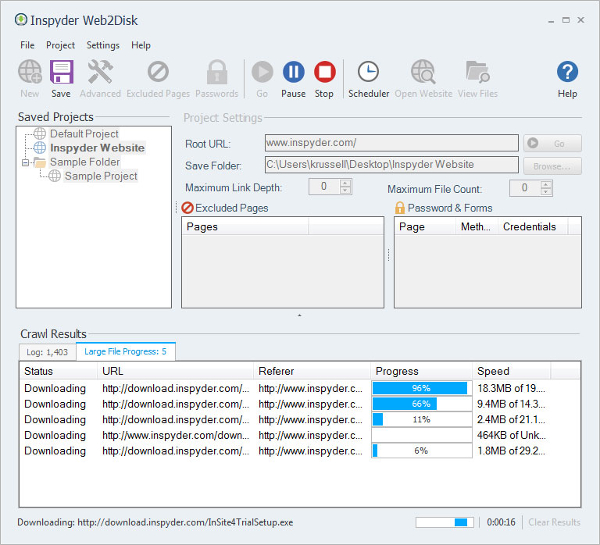

- WEBSITE ALL IMAGE DOWNLOADER HOW TO
- WEBSITE ALL IMAGE DOWNLOADER PDF
- WEBSITE ALL IMAGE DOWNLOADER INSTALL
- WEBSITE ALL IMAGE DOWNLOADER DOWNLOAD
Maybe you’re a blogger, and the specs for your current post require at least one image or maybe you need some high resolution images to add to your landing page.Īlternatively, perhaps you’re improving your business website and want to make it more exciting and eye-catching with some pictures.įortunately, you can download high-resolution images for free.
WEBSITE ALL IMAGE DOWNLOADER HOW TO
Learn Also: How to Make an Email Extractor in Python.Numerous situations may arise when you need to download high-resolution photos. Web Scraping and API Fundamentals in Python 2021.Modern Web Scraping with Python using Scrapy Splash Selenium.Use proxies to prevent certain websites from blocking your IP address.įinally, if you want to dig more into web scraping with different Python libraries, not just BeautifulSoup, the below courses will definitely be valuable for you:.Use multi-threading to accelerate the download (since this is a heavy IO task).
WEBSITE ALL IMAGE DOWNLOADER PDF
Download every PDF file on a given website.Extracting all links on a web page and downloading all images on each.Īlright, we're done! Here are some ideas you can implement to extend your code: Note though, there are some websites that load their data using Javascript, in that case, you should use requests_html library instead, I've already made another script that makes some tweaks to the original one and handles Javascript rendering, check it here. This will download all images from that URL and stores them in the folder "yandex-images" that will be created automatically. Let's test this: main("", "yandex-images") Getting all image URLs from that page and download each of them one by one. Related: How to Convert HTML Tables into CSV Files in Python.įinally, here is the main function: def main(url, path): The above function basically takes the file url to download and the pathname of the folder to save that file into. Progress = tqdm(er_content(1024), f"Downloading ", total=file_size, unit="B", unit_scale=True, unit_divisor=1024) # progress bar, changing the unit to bytes instead of iteration (default by tqdm) Response = requests.get(url, stream=True)įile_size = int(("Content-Length", 0))įilename = os.path.join(pathname, url.split("/")) # download the body of response by chunk, not immediately # if path doesn't exist, make that path dir Now that we have a function that grabs all image URLs, we need a function to download files from the web with Python, I brought the following function from this tutorial: def download(url, pathname):ĭownloads a file given an URL and puts it in the folder `pathname` Now let's make sure that every URL is valid and returns all the image URLs: # finally, if the url is valid We're getting the position of '?' character, then removing everything after it, if there isn't any, it will raise ValueError, that's why I wrapped it in try/except block (of course you can implement it in a better way, if so, please share with us in the comments below). There are some URLs that contains HTTP GET key-value pairs that we don't like (that ends with something like this "/image.png?c=3.2.5"), let's remove them: try: Now we need to make sure that the URL is absolute: # make the URL absolute by joining domain with the URL that is just extracted However, there are some tags that do not contain the src attribute, we skip those by using the continue statement above. To grab the URL of an img tag, there is a src attribute. I've wrapped it in a tqdm object just to print a progress bar though.

This will retrieve all img elements as a Python list. # if img does not contain src attribute, just skip The HTML content of the web page is in soup object, to extract all img tags in HTML, we need to use soup.find_all("img") method, let's see it in action: urls = įor img in tqdm(soup.find_all("img"), "Extracting images"): Soup = bs(requests.get(url).content, "html.parser") Second, I'm going to write the core function that grabs all image URLs of a web page: def get_all_images(url): Urlparse() function parses a URL into six components, we just need to see if the netloc (domain name) and scheme (protocol) are there. Open up a new Python file and import necessary modules: import requestsįrom urllib.parse import urljoin, urlparseįirst, let's make a URL validator, that makes sure that the URL passed is a valid one, as there are some websites that put encoded data in the place of a URL, so we need to skip those: def is_valid(url):
WEBSITE ALL IMAGE DOWNLOADER INSTALL
To get started, we need quite a few dependencies, let's install them: pip3 install requests bs4 tqdm Have you ever wanted to download all images on a certain web page? In this tutorial, you will learn how you can build a Python scraper that retrieves all images from a web page given its URL and downloads them using requests and BeautifulSoup libraries.


 0 kommentar(er)
0 kommentar(er)
